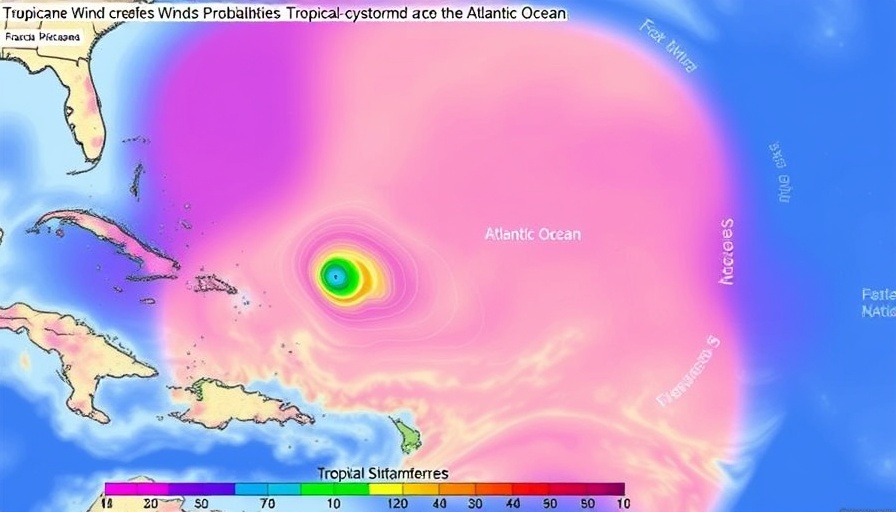
Hurricane Erin: A Growing Threat to North Carolina’s Outer Banks
North Carolina is bracing for Hurricane Erin, a rapidly intensifying storm that poses major risks for the Outer Banks. With Dare County officials declaring a state of emergency and ordering evacuations for Hatteras Island, the situation is becoming increasingly urgent. The National Weather Service forecasts that Hurricane Erin will unleash heavy surf, strong winds, and potential highway washouts, emphasizing that residents must take immediate action to safeguard their homes and families.
Understanding the Risks: Coastal Communities Under Threat
The impending impact of Hurricane Erin is not limited to Dare County. Coastal towns along North Carolina’s shoreline should prepare for life-threatening rip currents, severe flooding, beach erosion, and damaging surf conditions. Early warnings from emergency officials urge communities to be proactive as the hurricane's path may take it as close as 200 miles offshore.
Preparation: Essential Items for Your Family
The aftermath of hurricanes often leads to power outages and disruptions in essential services. North Carolina residents are urged to have emergency supplies ready, including:
- Clean drinking water, with a recommendation of at least one gallon per person per day for three days
- Non-perishable foods and a first aid kit
- Flashlights and extra batteries
- A weather radio to stay updated on the storm’s progress
Being well-prepared can make a significant difference in the face of a hurricane emergency.
The Bigger Picture: Climate Change and Hurricane Season
Hurricane Erin is not just an isolated incident; it reflects the broader trend of increasingly severe weather patterns. The 2025 Atlantic hurricane season is anticipated to be busier than average, with experts predicting 13 to 18 named storms, including several major hurricanes. Climate change has been identified as a key factor in this increase in frequency and intensity. With the hurricane season running from June through November, residents are reminded to stay vigilant and prepared throughout this period, especially during its peak between mid-August and mid-October.
Community Resilience: Coming Together in Crisis
In times like these, community resilience can make all the difference. Across Charlotte and beyond, local organizations and neighbors are banding together to support evacuation efforts, provide shelter, and share vital information. It’s a reminder that even as storms loom, the power of community provides strength and solidarity.
What You Can Do: Join the Local Conversation
For those who want to stay informed and connected during this hurricane season, consider joining local community groups online. Platforms like Facebook and YouTube host pages such as Charlotte Local Unplugged, which provide real-time updates and resources, helping residents to navigate the challenges ahead. By becoming an active participant in your community’s safety and response efforts, you contribute to a more resilient Charlotte.
If you enjoyed this story, why not stay connected? Join Charlotte Local Unplugged on Facebook and YouTube for exclusive local information.
 Add Row
Add Row  Add
Add 




Write A Comment